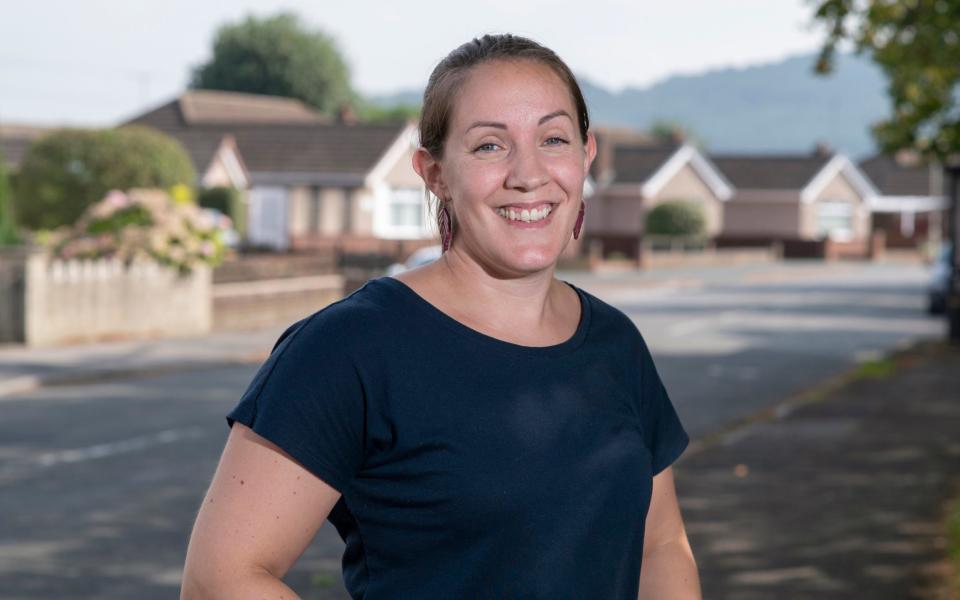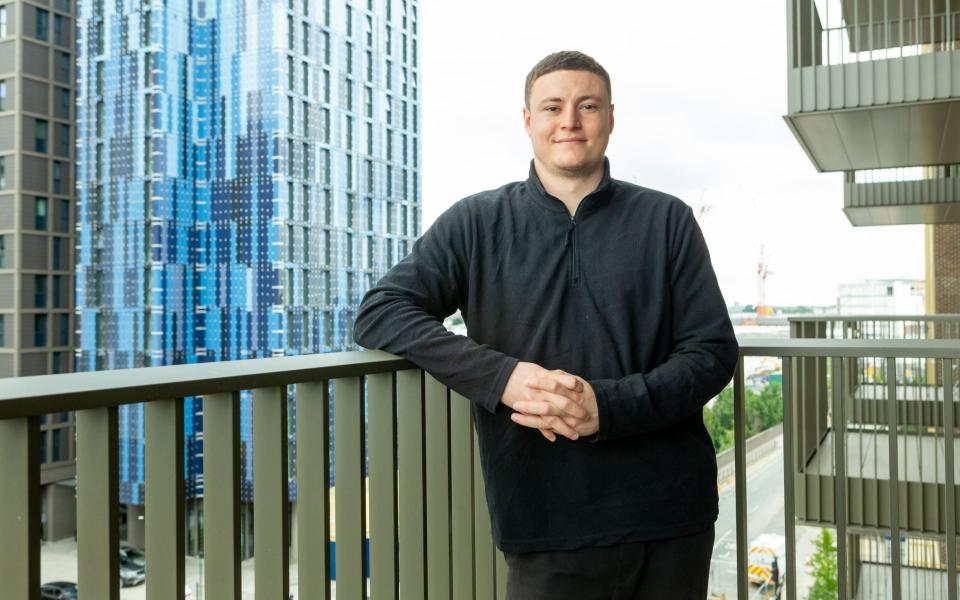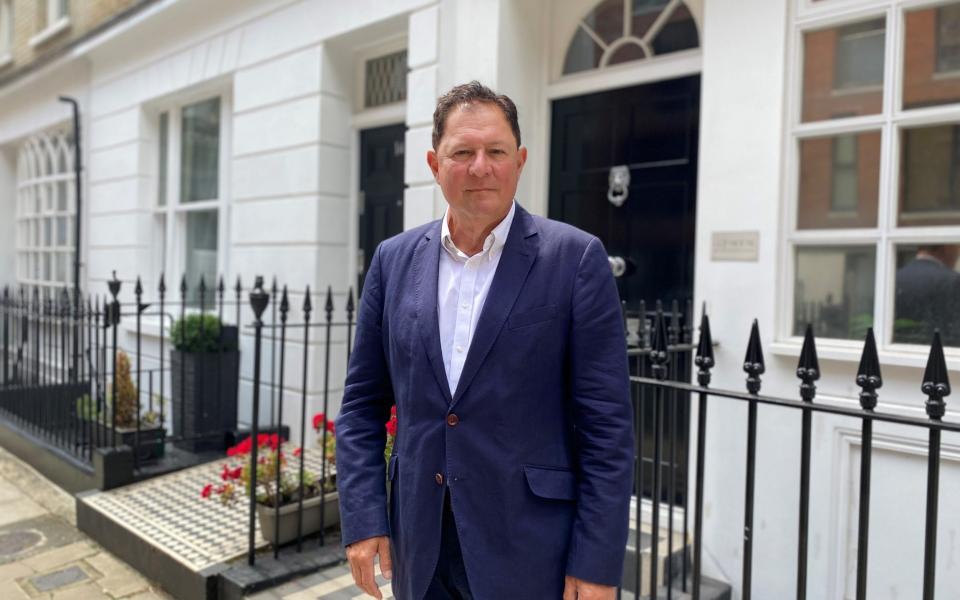The lengths parents are going to get their children on the property ladder

Has your relationship suffered as a consequence of giving or receiving parental money to buy a property? Email money@telegraph.co.uk
At the grand age of seven, Oliver Mitchell has a personal net worth that probably eclipses most of the children at his primary school.
When he was born, his parents Katie and Chris set up a bank account for their son and they’ve been paying into it ever since. The amounts involved aren’t large, but over time they have totted up to more than £8,000. “We were both in the military and earning good money, and we didn’t really need our child benefit money, so we decided to save it for him,” says Katie.
A standing order sends the money – around £80 per month – to Oliver’s Junior Isa, and Katie makes sure to regularly switch accounts to chase the best interest rates. To give his savings an extra boost Katie also asked the family not to buy Oliver gifts when he was born, but instead to pay into his account.
“He really didn’t need anything for birthdays and Christmas,” says Katie. “That lasted for a couple of years – he does get presents now.” Parents can receive child benefit until they are 20, as long as they are in education or training; that adds up to around £19,000 which, with investment returns, would produce a sizeable nest egg.
Katie, 38, and Chris, 39, who live in Gloucester, hope Oliver will use the money as a deposit for a home of his own one day. “By the time he is ready to buy somewhere it will probably not touch the sides, but it is a start,” says Katie, who has since set up her own photography business, Moments by Katie Mitchell Photography.
“Maybe we will be in a position to contribute some more by that time too. We are doing the best that we can for him. I am glad we are doing something, even though the increase in the cost of living has made it more painful for us. If we didn’t do something he’d probably end up living at home forever.”

‘I wanted to help my son now, rather than wait until I die’
Getting your children onto the property ladder has been an increasingly serious concern for parents, as the gulf between average earnings and average house prices has grown wider and wider.
According to the Office for National Statistics, a full-time employee in England on an average wage (£35,100) needs 8.3 times their salary to buy an average home (£290,000). In cities like London, Bristol, and Cambridge this ratio is far higher.
Riding to the rescue of priced out twenty- and thirty-somethings is the Bank of Mum and Dad (Bomad). Gifting by family members to buy property is at a record high, according to research by Legal & General.
It found that this year, 42pc of properties bought by people aged under 55 will have help from the Bank of Mum and Dad, equal to 335,000 transactions. By 2026 that will reach £11.3bn.
Different families – because Bomad also covers gifts from grandparents, aunts, uncles, siblings, and extended family – raise money to help the younger generation in different ways.
Legal & General found that one fifth hand over the proceeds from downsizing; others dip into their pension pots, usually possible after the age of 55, while some are in a position to take money out of savings and investments to help. Some 12pc of people take out equity release to release cash to funnel towards a deposit.
For many the gesture is not without personal cost. Separate research from the insurer has found that 17pc of over-55s were enduring a lower standard of living after helping their children buy a house.
Anecdotally, there is evidence that children have mixed feelings about being gifted deposit money. There is gratitude, of course, mixed with shame that they aren’t able to stand on their own two feet, and embarrassment about admitting to less fortunate friends the extent of their family’s support.
For Natalie and Ian Winton, helping their two sons on to the property ladder was a no-brainer – even if it means they will be paying off their mortgage for longer. “Why wouldn’t we?” says Ian, 62, who works in digital advertising and technology.
When he and Natalie, 59, who works in marketing, were starting out, the housing market was very different. They bought their first flat, in Ealing, west London, in the mid-1980s for around £36,000. “I think my dad gave me a grand, and we had a couple of thousand pounds between us and that was all we needed,” says Ian.
Today local prices have escalated, dramatically. When the couple’s youngest son, Austin, 26, an analyst at a media agency, started thinking about buying a flat he quickly realised he wasn’t going to be able to save for a deposit and keep on renting a flat in Clapham, south west London. Last year he returned to the family home to save money.

“We had helped his brother three years ago, and I always knew we wanted to do the same for Austin,” says Ian.
He told his son to investigate shared ownership, in which you have a mortgage on a share of a property and pay rent on the rest. Austin came across The Perfume Factory, a development by NHG Homes in North Acton, and in January of this year he became the proud 25pc owner of a two-bedroom flat, with a market value of £500,000.
His share cost £125,000 and his parents put down the £25,000 deposit.
The money came out of a savings account – Natalie and Ian have an offset mortgage which meant the money was easily available. “It probably means we will have a mortgage for a few years longer, and it also means he has to invite me round to dinner,” says Ian. “I wanted to help both of them as much as I could, rather than for them to wait until I die to get an inheritance.”
‘We felt it was important to give them a good start in life’
Buying agent Liam Monaghan, of LCP Private Office, is unsurprised by this show of parental generosity. “Pretty much all the first-time buyers we deal with have financial help from their parents,” he says.
Monaghan’s clients are at the more affluent end of the buying spectrum, but many baulk at buying properties outright for their offspring. “We tend to see a between 50pc and 100pc contribution from parents,” he says. “Often the parents like their children to take on some of the financial responsibility via a smaller mortgage, say 25pc.”
These parents step in with cash gifts partly because they understand that housing is unaffordable in large swathes of the country. Gifting money in order to sidestep inheritance tax is another big driver, adds Monaghan.
His recent clients include Rick and Linda Denton, who rearranged their finances to free up £325,000 to help their 29-year-old son onto the property ladder.
The couple, both 63, were keenly aware that without assistance he and his girlfriend, despite both having full-time professional jobs, would be stuck in expensive rental accommodation forever.

Their gift has enabled their son to buy a two-bedroom flat in Denmark Hill, south London. Their 30-year-old daughter, a lawyer, was given a similar amount to buy her flat in West Hampstead, north London, three years ago.
“We felt it was important to give them a good start in life,” says Rick, who has worked in financial services, and is now an investor, company director, and entrepreneur. “We wanted to make sure they got through university debt free, and could buy a reasonable property in London. We didn’t want them bowed with debt.”
But equally Rick and Linda, who runs her own public relations firm, didn’t want to give their kids a completely free ride. Their son borrowed four times his annual salary to help pay for the rest of the property, with his girlfriend’s wages also factored in.
The couple, who live on Guernsey, were able to finance their contribution by dipping into their investment portfolio.
The money was explicitly given in the form of a gift, not a loan, which means that it should be exempt from inheritance tax, providing Rick and Linda live for at least seven years. “It was part of an inheritance plan,” says Rick. “They would not have been able to buy without parental help. It is very, very difficult unless you are in an exceptionally highly paid career.”